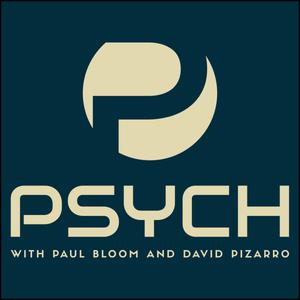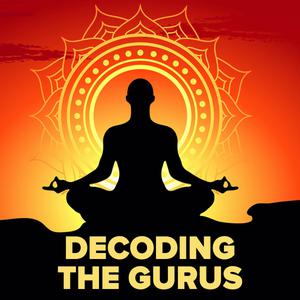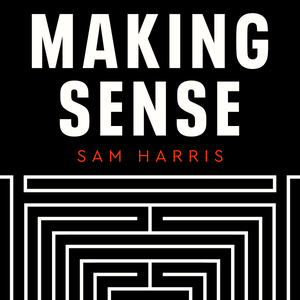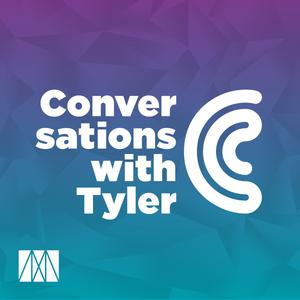
Psych
David Pizarro
A podcast tour of the human mind
- 53 minutes 23 secondsChapter 15: Happiness
Our final chapter (at least for now)! In this episode, Paul and David discuss the science of happiness. We cover the difficulty of defining happiness (or the good life in general), the rise of 'positive psychology', the various factors that we know are related to happiness (genes, money, age, having children), and the question of why we can't just choose to be happy. We end with a discussion of pleasure and pain, and some puzzling findings about our memory of painful experiences.
Read the book that inspired the podcast: "Psych: The Story of the Human Mind" [amazon.com]
Email us with your psychology questions for a future episode!: [email protected]
5 July 2023, 2:15 pm - 56 minutes 16 secondsChapter 14: Clinical Psychology
Paul and David go further beyond their areas of expertise than usual and discuss the field of clinical psychology--the part of psychology interested in understanding and treating psychological dysfunction. What are mental illnesses? How do we come up with the categories of various psychopathologies? Are mental illnesses the same sort of thing as other diseases, or is the term "disease" more like a metaphor? Are disorders like schizophrenia best understood as discrete categories (either you have it or you don't) or are they continuous? How should we understand personality disorders? Finally, are we making progress on understanding and treating mental illness?
Read the book that inspired the podcast: "Psych: The Story of the Human Mind" [amazon.com]
Email us with your psychology questions for a future episode!: [email protected]
27 June 2023, 9:30 pm - 1 hour 1 minuteChapter 13: Individual Differences
Paul and David step away from the study of psychological universals to discuss the ways in which we are different from one another. What is our best theory of personality? How is personality assessed? Do personality tests predict behavior? What does it mean to be intelligent? Do IQ tests measure anything important? What sorts of things does IQ predict? Are there multiple intelligences? Finally we dip our toes into behavioral genetics. What is heritability? How heritable are psychological traits? Finally, can parents really shape the personality or IQ of their children?
Read the book that inspired the podcast: "Psych: The Story of the Human Mind" [amazon.com]
Email us with your psychology questions for a future episode!: [email protected]
20 June 2023, 5:45 pm - 1 hour 8 minutesChapter 12: Social Psychology Pt. 2
In this episode, Paul and David tackle the social psychology of groups (or at least, a small part of it!). Why do we fall prey to stereotyping? Why do we so sharply distinguish between "us" and "them"? What are the developmental and evolutionary origins of our ingroup favoritism/outgroup bias? Is there such a thing as implicit bias/implicit racism? What does the most popular measure of implicit bias (the IAT) actually measure? And finally, what can be done about these group biases?
Read the book that inspired the podcast: "Psych: The Story of the Human Mind" [amazon.com]
Email us!: [email protected]
12 June 2023, 5:00 pm - 55 minutes 25 secondsChapter 11: Social Psychology Pt. 1
Paul and David begin their discussion of social pyschology by diving into a few of the big topics/areas of research in the field: the differences between the way we see ourselves and the way we see others, obedience to authority and Milgram's classic experiments, and research on "thin-slicing" -- our tendency (ability?) to form quick impressions of others based on minimal information. They end the episode by discussing the controversial research on "social priming": can trivial features of your environment really have such a strong influence on your judgment and behavior?
Read the book that inspired the podcast: "Psych: The Story of the Human Mind" [amazon.com]
Send us a message!: [email protected]
29 May 2023, 7:30 pm - 1 hour 8 minutesPsych Q&A
Paul and David devote an episode to listener questions. Among the topics we discuss--the function of consciousness, the psychology of trauma (and it's growing popularity), how we deal with our non-expertise when discussing research outside our fields, the "extended mind" hypothesis, and our picks for some of the best living psychologists.
Read the book that inspired the podcast: "Psych: The Story of the Human Mind" [amazon.com]
Email us with your psychology questions for a future episode!: [email protected]
22 May 2023, 10:00 pm - 55 minutes 41 secondsChapter 10: The Replication Crisis
In this episode, Paul and David dive into the controversy surrounding the very public failings of scientific psychology--the so-called "replication crisis". Why did it happen, how has it changed how we view (and teach) about our field, and are we optimistic about the future of psychology?
Read the book that inspired the podcast: "Psych: The Story of the Human Mind" [amazon.com]
Email us with your psychology questions for a future episode!: [email protected]
8 May 2023, 4:00 pm - 1 hour 1 minuteChapter 9: Emotion and Motivation
What are the things that move us as human beings? In this episode Paul and David cover a broad range of "hot" topics (having to do with emotion and motivation), including evolutionary theory, disgust, sexual desire, morality, and how much money it would take for us to spit on a picture of someone we love.
Read the book that inspired the podcast: "Psych: The Story of the Human Mind" [amazon.com]
Email us with your psychology questions for a future episode!: [email protected]
2 May 2023, 4:30 pm - 56 minutesChapter 8: Rationality
Paul and David discuss human rationality and its limitations, including the heuristics-and-biases approach, System 1 and System 2, positive illusions, confirmation bias, motivated reasoning, and conspiracy theories.
Read the book that inspired the podcast: "Psych: The Story of the Human Mind" [amazon.com]
Email us with your psychology questions for a future episode!: [email protected]
24 April 2023, 4:00 pm - 1 hour 1 minuteChapter 7: Sensation, Perception, and Memory
How do we get the external world into our heads? In this episode, Paul and David cover a few of the more interesting features of sensation, perception, and memory. What can visual illusions tell us about the mind? Can perception be influenced by our beliefs and desires? What are flashbulb memories, and are they accurate? Are some of our memories completely false? And what is a memory palace?
Read the book that inspired the podcast: "Psych: The Story of the Human Mind" [amazon.com]
Email us with your psychology questions for a future episode!: [email protected]
17 April 2023, 4:00 pm - 1 hour 14 minutesChapter 6: Language
In this episode Paul and David discuss another of Paul's area of expertise--language. What is language? Do any animals have it? How does it develop (and how do children learn it so fast)? Why do children learn nouns sooner than they learn verbs and adjectives? How much does language shape thought?
Read the book that inspired the podcast: "Psych: The Story of the Human Mind" [amazon.com]
Email us with your psychology questions for a future episode!: [email protected]
10 April 2023, 4:00 pm - More Episodes? Get the App
Your feedback is valuable to us. Should you encounter any bugs, glitches, lack of functionality or other problems, please email us on [email protected] or join Moon.FM Telegram Group where you can talk directly to the dev team who are happy to answer any queries.
 Sean Carroll's Mindscape: Science, Society, Philosophy, Culture, Arts, and Ideas
Sean Carroll's Mindscape: Science, Society, Philosophy, Culture, Arts, and Ideas
 Decoding the Gurus
Decoding the Gurus
 The Wright Show
The Wright Show
 Very Bad Wizards
Very Bad Wizards
 Making Sense with Sam Harris
Making Sense with Sam Harris
 Conversations with Tyler
Conversations with Tyler